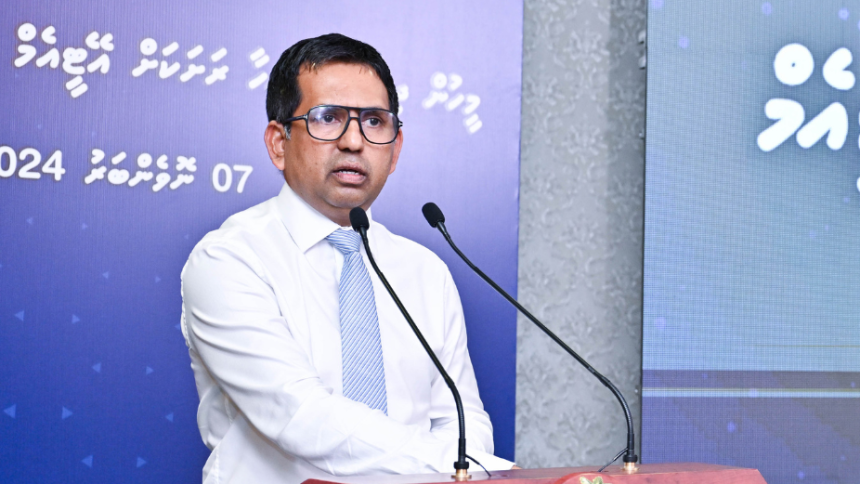Economic Minister Mohamed Saeed has dismissed criticism over the perceived delay in establishing the Development Bank of Maldives (DBM), assuring that the project is proceeding as planned. The DBM, a key electoral pledge of President Dr. Mohamed Muizzu, was incorporated on May 16, 2024, under the Companies Act. An application for a banking license was submitted to the Maldives Monetary Authority (MMA) on July 28, with final approval granted on October 13.
In a post on social media platform X on Sunday, Saeed detailed the bank’s phased rollout, explaining that the first phase—focused on institutional setup—is progressing on schedule. He highlighted that DBM’s business model is geared toward institutional investors and large-scale infrastructure initiatives, with retail services to follow in subsequent stages.
According to Saeed, this staggered approach aligns with broader efforts to stabilize and fortify the Maldivian economy. “Not just the DBM, but the stability is now brought in, overcoming the mess we inherited from an irresponsible government which lacked discipline in managing public finances,” he wrote.
President Dr. Muizzu has previously emphasized the DBM’s central role in diversifying and expanding the local economy, underscoring its potential to catalyze investment in sectors such as tourism, real estate, housing, and renewable energy. The bank’s primary mandate, like other development banks worldwide, is to drive economic initiatives by providing financial backing for new ventures and industrial activities.
In August 2024, President Muizzu appointed key figures to DBM’s leadership, including Singaporean Aruni Goonetilleke as Chairperson and British national Noel Gregor Paterson-Jones as CEO. The board also comprises Maldivian Ahmed Ali, Singaporean Saeed Abdul Nasir Bin Saeed Hassan Al-Junaid, and Briton Robert Daniel Kant.
The establishment of the DBM aligns with government policies aimed at funding infrastructure projects, promoting sustainable economic and social development, and simplifying the financing of PSIP projects. Officials also expect the DBM to help retain more foreign exchange within the national banking system, thereby contributing to the broader stability and growth of the Maldivian economy.




